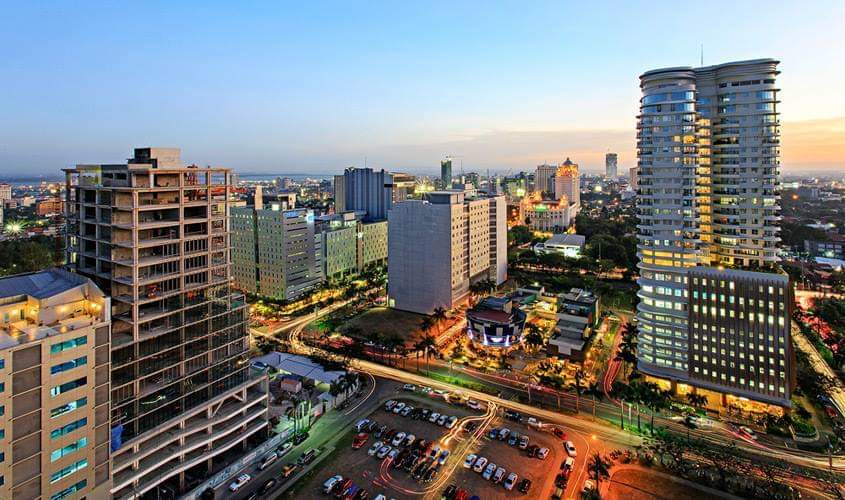
Office spaces at the Cebu IT Park (in photo) and Cebu Business Park are the most in-demand spaces for locators. CONTRIBUTED PHOTO
CEBU CITY—Cebu will continue to attract outsourcing firms due to its steady pool of competent college graduates who could handle voice support and higher value-added services such as medical and legal transcription and software engineering.
Joey Bondoc, senior manager of Colliers International, noted that Cebu college graduates reached more than 39,000 each year in the following courses: engineering and mathematics (8,906), information technology (3,549), law and jurisprudence (252) and, medical and allied (2,913), among others.
Bondoc said most of the recorded demand for office space were in Cebu Business Park (CBP) and Cebu IT Park (CITP), and nearby areas, where office vacancy rates in the first quarter of 2019 range from a low of 0.6 percent in CBP to 7.4 percent in CITP.
Cebu will continue to attract outsourcing firm even as emerging sectors like English as Second Language and Philippine Offshore Gaming Operator (POGO) companies would locate in office spaces in Cebu, says Joey Bondoc, senior manager of Colliers International. CDND PHOTO / Doris Mondragonp
For example, the combined 70,000 square meters of new office space in CITP and CBP completed in 2018 was leased in less than 12 months.
He credited the low vacancy rates to critical mass, the presence of support services such as 24/7 transportation hubs and retail options, and the availability of quality office spaces.
Bondoc also noted the emergence of English as a Second Language (ESL) companies as a key driver of office space demand in Cebu City and nearby cities.
ESL firms QQ English, New Type International Language School and TOMAS English Training Center are located at the CITP while Access e-Talk Plus Inc., Winkey Online English Academy and Nexseed have facilities at the CBP.
QQ English occupies the biggest office space covering 9,500 square meters.
Bondoc advised developers to be more flexible on the sizes of office spaces they offer to the market.
“If they (developers) build, they should be able to cut it to smaller sizes, like 100 square meters (or) 200 square meters,” he said.
According to Bondoc, ESL centers would continue to expand while new players would emerge.
However, he suggested that developers consider the office space requirements of the ESL companies, which require smaller office cuts but occupy larger spaces when they expand.
Aside from ESL companies, developers should also look at the expansion of non-outsourcing companies such as banks, insurance firms, manpower agencies and law firms, Bondoc said.
He added that financial technology (fintech) companies would be another sector to watch out for.
On the other hand, the cities of Mandaue and Lapu-Lapu would continue to be an attractive location for Philippine Offshore Gaming Operator (POGO) companies since its local governments have allowed offshore gaming companies to operate in their jurisdictions.
Bondoc said that the POGOs would continue to locate in the Philippines, which is the only country in Asia that accommodates them.
Since Cebu has an international airport, the POGOs have been spilling over to the province, he added.
According to Bondoc, the companies that are part of the Build, Build, Build program could be occupying more space in Cebu.
Mandaue City could also attract non-outsourcing firms such as banks and insurance companies due to cheaper lease rates and flexibility in office floor cuts.
Meanwhile, Colliers suggested that developers consider putting up township-developments in the vicinity of the ongoing and proposed government’s infrastructure projects.
Bondoc explained that the property values near these projects would increase considerably upon the project’s completion.
“In Metro Manila, based on our research, within one kilometer of a proposed station of a rail project, we saw a 50 to 100 percent increase in property and land value,” he stressed.
Colliers noted that areas near various projects such as the proposed Cebu- Cordova Link Expressway, the Cebu Bus Rapid Transit (BRT), the Cebu Expressway and the Cebu LRT project, could be assessed for their viability for township projects that feature offices, condominium, malls, hotels, and schools. / celr